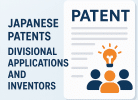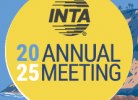We published an article in August 2021 and a followup newsflash in December regarding the Japanese government’s move toward a legal framework for a new secret patent system. The task force considering aspects of economic security for Japan presented their proposals for an upcoming amendment to the Economic Security Act on February 4, 2022, and major Japanese financial media outlet Nikkei Shimbun later spread the news with commentary.[1]
The secrecy measures could come to Japan soon. Though these are unlikely to affect foreign inventors or assignees directly, all can note the note of caution amid innovation. The task force’s proposals show Japan’s concern with geopolitical unrest, balanced by reluctance to hurt its fragile, weary with too much uncertainty or financial support to applicants.
The proposal recommends following the approach to freeze examinations until security risk is lower (similar to USA, UK, and France) rather than to proceed toward registration in secret of a patent (as found in the PRC and Germany).[2, p. 46] It calls for only very limited fields (such as nuclear power) to be considered possibly non-publishable. The study group suggested a “small start” on these sensitive classifications and possible adjustments over time.[2, 47]
Restrictions upon Japanese applicants could include (1) prohibition on filing the priority application outside of Japan, (2) secrecy mandates regarding the sensitive claims, and (3) monitoring and punishments of infractions of the secrecy mandates [2, pp. 51-53].
On the other hand, the proposal recommends ways to lessen the impact to applicants when their applications cannot be published, such as (1) an opportunity for applicants to cancel applications, (2) enabling Divisional Applications on less-sensitive claims in an application, and (3) establishment of a remuneration policy for lost profits when an applicant is not able to make money on a patent as perhaps hoped, and more.[2, pp. 50-51, 53].
The “small start” comment on covered technology classifications hints that the government could try to extend secrecy controls over more areas of innovation. Foreign innovators in areas relevant to military and other sensitive fields might need to be cautious if researching with possible Japanese applicants.
* The information provided on this website is for informational purposes only and is not intended as legal advice.
** For questions or consultation, please contact us for more information.
Taro Yaguchi
Sources
[1] Miura, Takashi. “安全保障を踏まえた特許の非公開化、ようやく日本でも [Finally Japan also to make non-publication of patents in the interest of national security].” https://xtech.nikkei.com/atcl/nxt/column/18/00736/00036/ In Nikkei X-TECH, of Nikkei Shimbun. February 22, 2022. Accessed February 24, 2022.
[2] “経済安全保障法制に関する提言 [Proposals for the Economic Security Act]” PDF. https://www.cas.go.jp/jp/seisaku/keizai_anzen_hosyo/dai2/shiryou2.pdf. Available at “経済安全保障推進会議(第2回)“. Japan Cabinet Secretariat. February 1, 2022. Accessed February 24, 2022. Much of this is summed up more briefly in another file, “経済安全保障法制に関する提言 概要1 [Summary 1],” PDF, https://www.cas.go.jp/jp/seisaku/keizai_anzen_hosyo/dai2/shiryou1.pdf. Published February 1, 2022. Accessed February 24, 2022.
Header image by Tayeb MEZAHDIA from Pixabay






